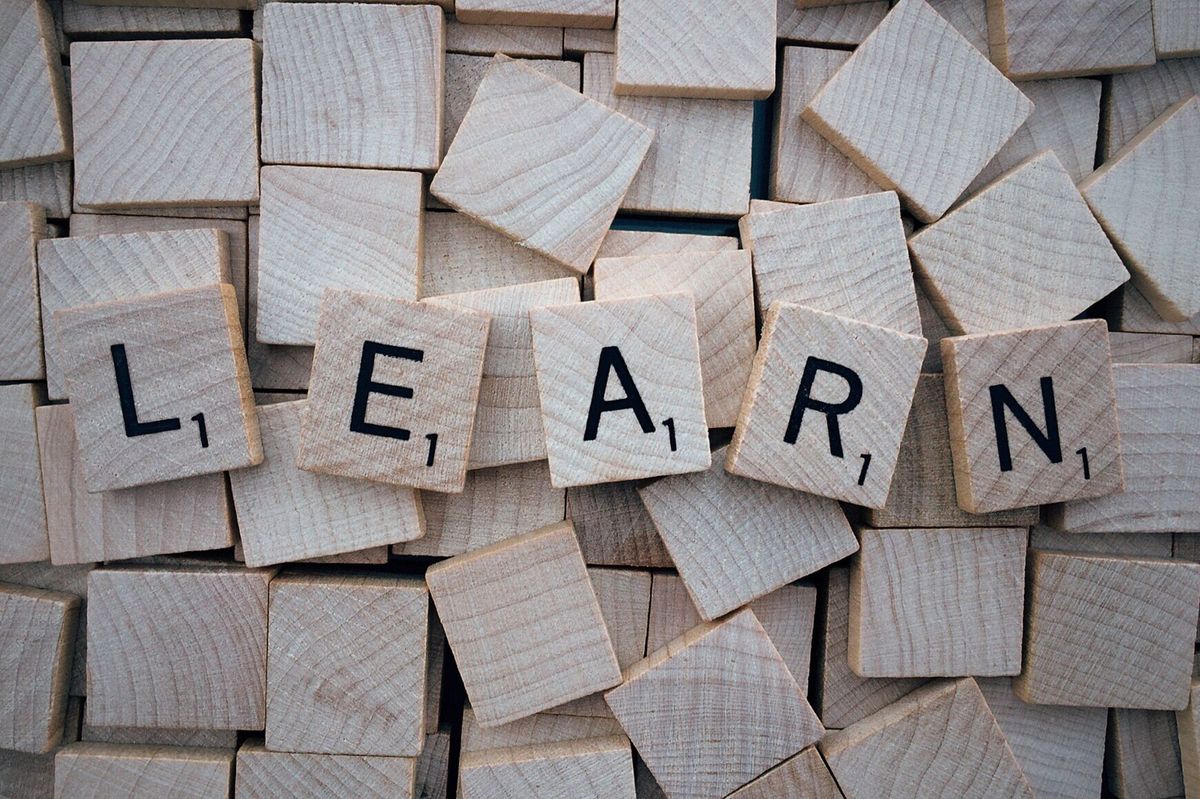
My tips and tricks to learn languages
A 7 minutes read written by Sonia H work in progress
This is a work in progress: come back again to get more insights :)
I've been always immersed in languages, as I was raised bilingual and some of my family members were and are polyglots. The insanity that came after is all my fault.
Being raised bilingual has given me some benefit to begin with, BUT that is only a part of it. The other, often ignored, is that you have to work hard to keep languages alive. There's no way out. There's no magic trick that will make you fluent in a week (I've had people ask me to make them fluent in a week, and in three weeks). Knowing how to say hi, how you are, and how old are you in a language doesn't make you fluent. But that's also where we begin from.
Yes, there are math geniuses. There are also language geniuses. But both of them come at a price - i.e. you can't be a genius at everything. For my general math skills, I'd say half my brain is atrophied and the creative part is the developed one. Except for algebra. Algebra can be nice.
My father began learning English in his 50's - with hardship. But he learned enough English for his needs, which was reading business mails. Although our brain has it easier to learn languages when we're young kids, learning foreign languages is also possible when we're grown ups. It's the techniques we learn, that will make it easier to keep on learning as adults. And knowing what helps us best.
My tips as a student
Diversify
I've used Duolingo ever since it appeared, and I've began using Beelinguapp and Busuu recently. If you enjoy reading, like me, then looking for methods or apps to learn languages by reading is a valuable option. Depending on the resources and material you have available (for you and for your language of choice), diversifying with books, apps, and online lessons could be the best option. That way, if you're busy and can only dedicate 10 min in the morning and 10 min in the evening, you'll be able to alocate your time to the different options during your week. (I do Beelinguapp stories in the weekend, and Duolingo and Busuu every morning and evening) In addition, I listen to podcasts weekly and read an article (as long as my brain allows) per week in one of the languages I'm keeping up. For more advanced students, read books in your target languages!
Write it down
Language learning is overwhelming. You need a lot of brain RAM to do it, and accumulative memory. Writing things down in a notebook (or two) can free mental space and help you review things when you're tired. I've always kept pocket-sized Moleskines of different colours for the different languages I've learned ever since I was 14, when I began learning Hebrew, German, and Russian. You can keep the hardcore grammar for the big notebook (like I've done with Arabic), and the vocabulary and conversational stuff in the Moleskine, which you can easily review when you're out and about, and when you're exhausted.
Use colours
Although I would like to reduce plastic use even more, I can't deny that my coloured highlighters and pens have helped me a lot with organising my language material in my Moleskines. If you are a visual person, colour blocking by category and marking things with colours can help you more than you imagine. If you need to use page markers, do that as well - whatever helps you absorb things better.
Consider passive learning
It is useless to force your brain to remember everything, or to learn "everything" in lists, like that German student who asked me the full list of all Spanish verbs that go with the preposition "a". The brain doesn't work like a food processor. However, reviewing regularly in a moderate manner is an effective way to let your brain remember and absorb what it has learned, doing some mental housekeeping. Read without understanding everything. Review a bit regularly. Be a sponge. It pays out :)
Bear language families in mind
We can all get overly excited when learning a new language. You just have to be aware of the sort of beast that awaits you, here's why: if you're a native English or German speaker and want to learn a Romance language (French, Spanish, Italian, Romanian...), you're up for more than one challenge. Will you enjoy learning? Absolutely - it's just that these two language families (Germanic languages and Romance languages) are very different in how they function and what they prioritise. I wish I had known that Russian has a gazillion cases, and how Turkish builds the gerunds, before I began learning them...🫠
It's just important to know that beforehand to prepare better, as this factor will be relevant for grammar, syntax, and morphology.
My German students have a harder time at learning Spanish than my Romanian students. My British student learned German much easily, and is getting to Spanish through his knowledge of Italian. Voilà. That is something I must know as a teacher - I always ask new students about their mother tongue in our trial lessons - so that I know how to approach teaching adapted to the departure line they'll be beginning from.
Now comes the moment where your brain will turn into booger.
🇫🇷 Le chat noir mange - Le chat noir ne mange pas
🇪🇸 El gato negro come - El gato negro no come
🇫🇷 Est-ce que le chat noir mange? (the terrible "est-ce que" = "is it that")
🇪🇸 ¿El gato negro come? (bam! nothing changes except for the question marks, which are two in Spanish)
The order of Subject, Object and Verb changes throughout the different language families. I'd recommend that you get familiar with it when going to learn a language, as being aware of it will only ease your language learning process. (You can even check the page on the language you want to learn in Wikipedia).
German is even more confusing in general, although not so much for other Germanic languages, because it requires - at least in non-colloquial language - that the verb go last. Example:
Romance languages (French, Spanish, Latin, Romanian, Portuguese), for instance, don't give the order so much importance. We actually can manage to communicate even if we don't speak each other's language, since we all read multilingual shampoo bottles when in the shower in the 90's.
My tips as a teacher
Choose your language wisely
Since a language is a commitment, ask yourself the following:
- Why do I want to learn this language?
- Whom will I speak this language with?
- How many resources are there to learn it?
- Am I learning it for pleasure or for work? (Or both?)
- How much time can I dedicate to it?
- How important is it, in my leisure priorities list?
Depending on what you answered to the questions above, you can already expect the outcome, the time it may take you to learn it, and how much energy you'll put into it. Now I'm fluent in French, but it took me years to feel comfortable around so many vowels, as I thrive with fricatives, pharyngeals, and gutturals. Being understood was my priority in time and space. I could dedicate my time bit by bit to polish my accent.
Be honest with yourself
How important is that language for you? Are you willing to dedicate X hours a week to it? With languages, as with anything else, we can fall into the endless to-do list trap: lots of things that you want to do, but not enough time or dedication to do them. Like with many things in life, I'd suggest to minimise your to-do list and keep your goals attainable step by step.
Be consistent if you really want progress
I've noticed higher progress the more hours you dedicate to something, also language learning. While one of my earliest students managed to speak fluently (not perfectly, but pretty good) in about a year, we've been doing 1h per week since half a year already. Do some language practice every day - baby steps are more effective than they seem. Another student of mine dedicates a total of 10h a week to Spanish (!!!) and she is pretty good - whereas another student wants to only have 2h in a row with me per week, and doesn't interact with Spanish besides our lessons, which leads her to keep on forgetting what we do. At the end, it's all up to you.
Know your strengths and weaknesses
If you tend to get distracted (like me), self-awareness can only help you with your language goals. If distraction is the problem, what is the thing that keeps you motivated? Individuate it and focus on it, so you can develop your language learning first to what is easier for you to follow, and then follow up with the harder things.
We all learn in different ways, and although there are general and/or famous methods, gnothi seauton (know yourself): if you're shy, maybe jumping into the bandwagon of language exchange groups is a bit too harsh at first. If you're a bookworm like me, learning while reading can be a natural option.
No, you can't skip grammar
This is like eating your veggies. Even if you don't enjoy them, you have to, lest you want to get a disease due to lack of vitamins. You can't escape it :(
I had very brief formal training as a teacher at a worldly renowned language school corporation, where they have their particular method - without a language bridge, and going full in. I've tried a bit of everything, and if there's something that I've learned in all these years as a tutor and languages freak, is that at the beginner stage, grammar is vital. The thing though, as I show in my teaching method, is how you teach and how you learn grammar. Not the heavy, hardcore way of learning things by memory from books, but neither the complete omission of grammar. Like with veggies, you want to prioritise absorption: that is, finding the right amount of grammar for you, and absorbing it in the way that helps you most. It's more about the way than about the what.
Wrap up
Languages are a commitment. I began learning so many languages in these last 17 years that it would be useless to write them down. I quit many because the level of involvement, interest, and possible interaction was lower than others - that is normal. That's why you have to be very honest about your interests and priorities.
Don't forget that language is part of culture: if you want to dive deep in a language or even adopt it for life as a passion (one of the most beautiful things), getting to know the culture(s) of the language will be a natural next step. Open your heart up and be ready for the marvellous cultural ride.




Comment